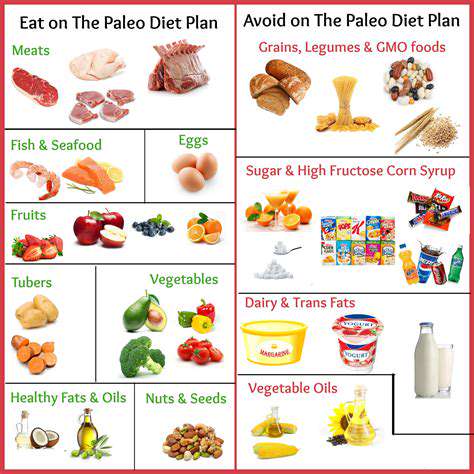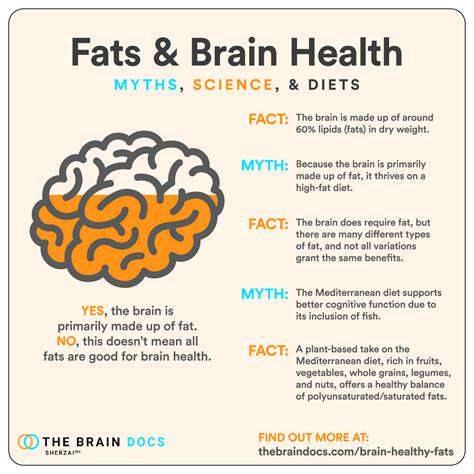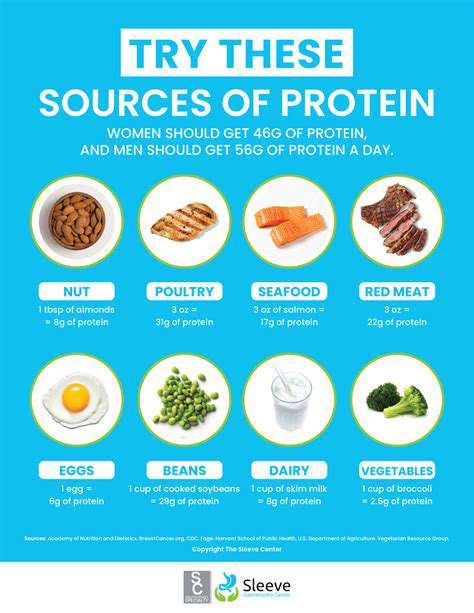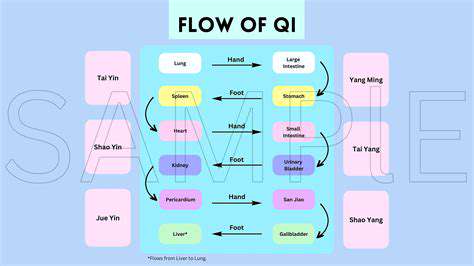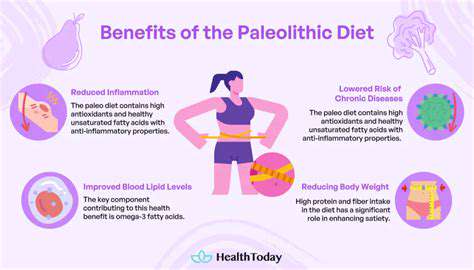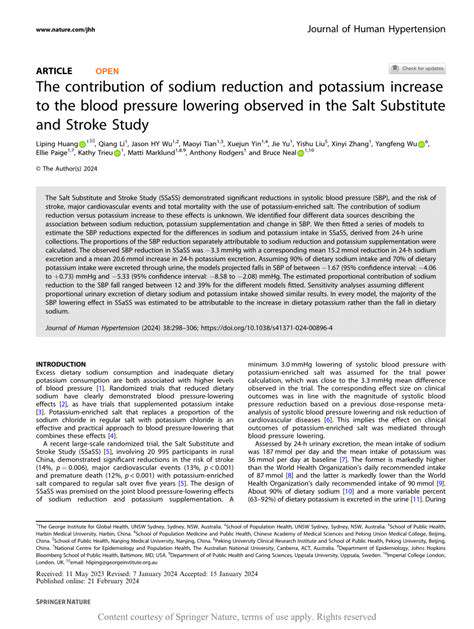The Benefits of Cooking with Whole Grains
Understanding the Whole Grain Difference
Whole grains are more than just a trendy food choice; they represent a significant leap forward in nutritional value compared to their refined counterparts. The key difference lies in the preservation of the entire grain kernel. This includes the bran, germ, and endosperm. Each of these components plays a vital role in providing a diverse array of nutrients, fiber, and antioxidants. Refined grains, on the other hand, have been processed to remove the bran and germ, significantly reducing their nutritional density and fiber content. This simple act of processing strips away a substantial amount of the nutrients that contribute to overall health and well-being.
The benefits of choosing whole grains extend beyond simply feeling full. They contribute to a healthier digestive system, helping to regulate bowel movements and prevent issues like constipation. The higher fiber content in whole grains promotes satiety, which can be incredibly helpful in managing weight and controlling blood sugar levels. This is because fiber slows down the absorption of sugar into the bloodstream, preventing those rapid spikes and dips in blood glucose that can lead to energy crashes and cravings.
The Nutritional Powerhouse of Whole Grains
Whole grains are a treasure trove of essential nutrients, including various B vitamins, iron, magnesium, and zinc. These nutrients are critical for a wide range of bodily functions, from energy production and nerve function to cell growth and repair. Incorporating whole grains into your diet can significantly boost your intake of these vital micronutrients, supporting overall health and well-being.
Beyond the micronutrients, whole grains are an excellent source of fiber. Dietary fiber is essential for digestive health and can contribute to lowering cholesterol levels. This is because fiber binds to cholesterol in the digestive tract, preventing its absorption into the bloodstream and aiding in its elimination. This benefit is especially important in the context of cardiovascular health, as high cholesterol levels are a major risk factor for heart disease.
Furthermore, the complex carbohydrates found in whole grains provide sustained energy release, preventing those mid-afternoon energy slumps that often come from refined carbohydrate consumption. This sustained energy release contributes to better focus and concentration throughout the day, making whole grains a beneficial addition to anyone's diet.
The antioxidants present in whole grains also contribute to overall health by protecting cells from damage caused by free radicals. This protective effect plays a crucial role in reducing the risk of chronic diseases and maintaining a healthy immune system. This protective effect is another significant advantage of whole grains over refined grains.
The diversity of whole grains available, from quinoa and brown rice to oats and barley, offers a wide range of culinary possibilities. This allows for exciting and nutritious additions to your diet without sacrificing taste or variety.

Elevating Energy Levels and Mood: The Whole Grain Effect

Optimizing Your Diet for Enhanced Energy
A well-balanced diet is crucial for maintaining optimal energy levels and a positive mood. Prioritizing nutrient-rich foods like fruits, vegetables, and lean proteins provides sustained energy throughout the day, avoiding the energy crashes often associated with processed foods and sugary snacks. Focus on complex carbohydrates, which release energy slowly, keeping you feeling full and focused. Including healthy fats, such as avocados and nuts, also contributes to sustained energy levels and overall well-being.
Avoiding excessive caffeine and sugar intake is also important. While a small amount of caffeine may provide a temporary boost, excessive consumption can lead to jitters, anxiety, and ultimately, a decline in energy levels. Similarly, sugary foods provide a quick burst of energy followed by a significant drop, leaving you feeling sluggish and irritable. Making conscious choices about the types of foods you consume can significantly impact your energy levels.
The Power of Regular Exercise
Engaging in regular physical activity is a cornerstone of boosting both energy levels and mood. Exercise stimulates the release of endorphins, which have mood-boosting effects and can significantly improve your overall sense of well-being. Even moderate-intensity activities like brisk walking, cycling, or swimming can make a difference. Consistency is key; aim for at least 30 minutes of moderate-intensity exercise most days of the week.
Physical activity not only improves your physical health but also positively impacts your mental well-being. Regular exercise can reduce stress, improve sleep quality, and enhance cognitive function, all contributing to increased energy levels and a more positive outlook on life. Incorporate exercise into your daily routine to experience its numerous benefits.
Stress Management Techniques
Chronic stress can significantly deplete energy levels and negatively impact mood. Developing effective stress management techniques is therefore essential for maintaining a healthy energy balance and a positive outlook. Practicing mindfulness techniques, such as meditation or deep breathing exercises, can help manage stress responses and promote relaxation. These techniques can be incorporated into your daily routine to effectively reduce stress and improve your overall well-being.
Other stress-reducing strategies include engaging in hobbies, spending time in nature, and maintaining strong social connections. These activities can help you disconnect from stressors and cultivate a sense of calm and well-being. By actively managing stress, you can enhance your energy levels and improve your overall mood.
Prioritizing Adequate Sleep
Adequate sleep is indispensable for maintaining both physical and mental energy. Sufficient sleep allows the body to repair and rejuvenate, replenishing energy stores and supporting optimal cognitive function. Aim for 7-9 hours of quality sleep each night to allow your body to fully recover and prepare for the demands of the day ahead.
Creating a relaxing bedtime routine can also significantly improve sleep quality. Establishing a consistent sleep schedule, creating a calming sleep environment, and avoiding screens before bed can all contribute to a more restful night's sleep. Prioritizing sleep is a crucial step in maintaining healthy energy levels and a positive mood.
The Role of Sunlight and Hydration
Sunlight exposure plays a vital role in regulating the body's natural sleep-wake cycle and influencing mood. Regular exposure to sunlight can help regulate your circadian rhythm, improving sleep quality and boosting energy levels. Spending time outdoors during the day can be beneficial for your overall well-being.
Staying adequately hydrated is also essential for maintaining energy levels. Dehydration can lead to fatigue and low energy, so it's crucial to drink plenty of water throughout the day. Carrying a water bottle and making conscious efforts to stay hydrated can significantly impact your overall energy levels and well-being.
From Breakfast to Dinner: Easy Ways to Incorporate Whole Grains
Boosting Your Breakfast Routine
Starting your day with whole grains can be surprisingly easy and delicious. Oatmeal, for example, is a fantastic base for a healthy and satisfying breakfast. You can easily customize it with fruits like berries, nuts, or seeds, and a drizzle of honey or maple syrup for added sweetness. This simple swap can significantly increase your fiber intake, keeping you full and energized throughout the morning.
Another great option is whole-wheat toast. Pair it with avocado for healthy fats and protein, or a smear of nut butter for a more substantial breakfast. These small changes can make a big difference in your overall health and well-being, contributing to a more balanced and nutritious diet.
Lunchtime Whole Grain Power
Integrating whole grains into your lunch doesn't require elaborate recipes. A simple salad with whole-wheat pasta or quinoa as a base can be a delightful and nutritious lunch option. Add a variety of vegetables, lean protein sources like grilled chicken or fish, and a light vinaigrette dressing for flavor and a well-rounded meal. This approach is not only delicious but also promotes satiety and helps regulate blood sugar levels.
Savory Whole Grains for Dinner
Whole grains aren't just for breakfast and lunch; they're a fantastic addition to your dinner repertoire too. Brown rice, farro, or whole-wheat couscous can be the star of the show in a variety of flavorful dishes. Think about incorporating them into stir-fries, curries, or even as a base for hearty soups. These options provide a comforting and nutritious meal, packed with essential nutrients and fiber.
Beyond the Basics: Creative Whole Grain Dishes
Expanding your horizons beyond the typical whole grains is also a smart move. Experiment with whole-wheat tortillas for wraps or burritos, or explore the versatility of whole-grain bread for sandwiches and other culinary creations. This will help you discover new and exciting ways to enjoy whole grains while also keeping things interesting in your diet.
Whole Grain Snacks for Healthy Fuel
Whole grains are not just for meals; they can also be incorporated into your snacking routine. Whole-grain crackers with hummus, or a handful of air-popped popcorn are great options to keep your energy levels up between meals. These snacks provide sustained energy, fiber, and essential nutrients, helping you stay satisfied and focused throughout the day.
The Nutritional Advantages of Whole Grains
Whole grains are packed with essential nutrients, including fiber, vitamins, and minerals. Fiber, in particular, promotes digestive health, regulates blood sugar levels, and helps you feel full for longer. The vitamins and minerals found in whole grains contribute to overall health and well-being, supporting various bodily functions. Including whole grains in your diet can be a valuable step toward a healthier lifestyle.
Simple Swaps for a Healthier You
Switching from refined grains to whole grains is a simple yet powerful change you can make for improved health. Try replacing white bread with whole-wheat bread, or opt for brown rice instead of white rice. These small substitutions can significantly enhance the nutritional value of your meals and contribute to a more balanced diet. You'll be surprised at how easy it is to incorporate these healthier choices into your daily routine and feel the positive effects on your overall health.
